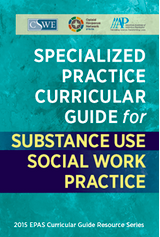
In 2019, Lake Ave Recovery’s Dr. James DiReda was selected to serve on the National Task Force for The Council on Social Work Education (CSWE) in developing 2015’s Specialized Practice Curricular Guide for Substance Use Social Work Practice. This exceedingly skilled task force consisted of esteemed educators from all over the United States, all sharing a goal of updating the standards around educating social work students.
As a practicing social worker for the past 30 years, Dr. DiReda was thrilled to work on this year-long project, as it encompassed his passions for social work, education and treatment of substance use disorders. Having earned a dual Ph.D. in Sociology and Social Work as well as a Masters’ degree in Social Work, Dr. DiReda recognizes the importance in all students learning about addiction and recovery, regardless of which social work program they attend.
Historically, among all helping professionals, social workers were the primary service providers to individuals who experience substance use disorders. With the increase in social worker involvement in the addiction field also comes new evidence-based practices and a push to implement them.
CSWE’s Substance Use Curricular Guide is intended to provide educators and trainers with the material necessary to teach future substance use disorder professionals and practitioners. Made up of suggested curriculum content, reading material, learning exercises, multimedia content and assignments surrounding specialized substance use competencies that go beyond and enhance the nine core social work competencies, the guide highlights various roles, setting and scenarios where it is essential to possess a strong understanding of substance use.
In 2008, a competency-based framework was adopted by the CSWE which stated “Competency-based education rests on a shared view of the nature of competence in professional practice. Social work competence is the ability to integrate and apply social work knowledge, values, and skills to practice situations in a purposeful, intentional, and professional manner to promote human and community well-being.”
The Educational Policy and Accreditation Standards (EPAS) recognizes a social workers competency as a holistic concept, that is dynamic and continues to grow over time.
The EPAS states that the nine competencies for social workers are as follows:
- Demonstrate ethical and professional behavior.
- Engage diversity and difference in practice.
- Advance human rights and social, economic and environmental justice.
- Engage in practice-informed research and research-informed practice
- Engage in policy practice
- Engage with individuals, families, groups, organizations and communities
- Assess individuals, families, groups, organizations and communities
- Intervene with individuals, families, groups, organizations and communities
- Evaluate practice with individuals, families, groups, organizations, and communities
Often, social workers themselves have been touched by a substance use disorder, drawing them to the work to help others. For this reason, the guide states that “ethical and effective practice necessitate that social workers in all settings engage in self-reflection and address internal bias.”
Social workers who are competent in specialized practice with substance use disorders understand that:
- Substance use disorders are complex health problems
- Substance use disorders are often co-occurring with other health and mental health issues
- Substance use disorders affect families and communities
- Treatment is diverse and multifaceted
- Recovery is possible
The Council on Social Work Education (CSWE) recognizes the undoubtedly integral role that social workers and it is for this reason they created the Specialized Practice Curricular Guide for Substance Use Social Work Practice, aiming at providing guidance to those training social workers, the backbone to addiction treatment and the mental health services associated with recovery.
